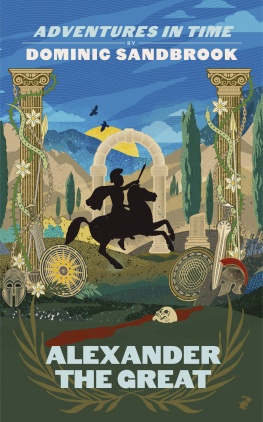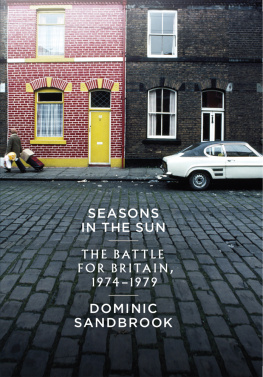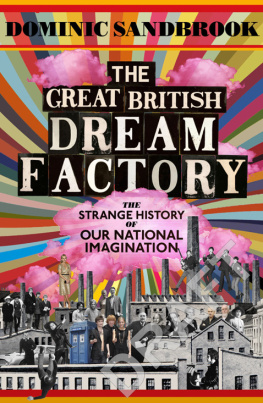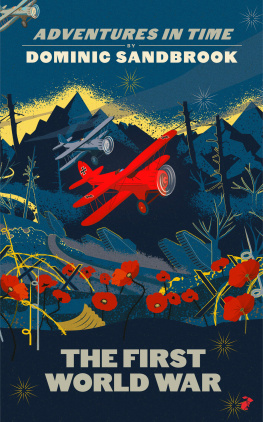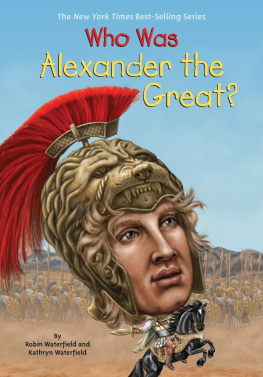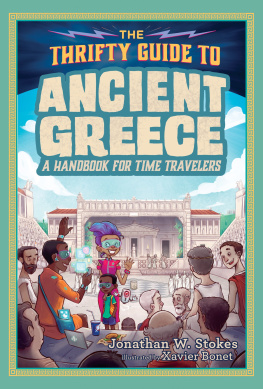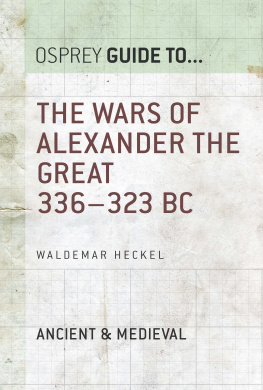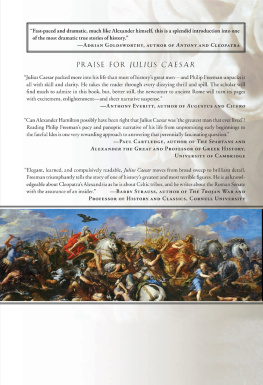
PUBLISHED
The Second World War
The Six Wives of Henry VIII
Alexander the Great
The First World War
FORTHCOMING
Cleopatra
The Vikings
The Conquest of the Americas
Napoleon

PENGUIN BOOKS
UK | USA | Canada | Ireland | Australia
New Zealand | India | South Africa
Penguin Books is part of the Penguin Random House group of companies whose addresses can be found at global.penguinrandomhouse.com.

First published in Particular Books 2021
Text copyright Dominic Sandbrook, 2021
Illustrations copyright Edward Bettison, 2021
The moral right of the author has been asserted
Cover Art: Edward Bettison
ISBN: 978-0-241-46975-0
This ebook is copyright material and must not be copied, reproduced, transferred, distributed, leased, licensed or publicly performed or used in any way except as specifically permitted in writing by the publishers, as allowed under the terms and conditions under which it was purchased or as strictly permitted by applicable copyright law. Any unauthorized distribution or use of this text may be a direct infringement of the authors and publishers rights and those responsible may be liable in law accordingly.
For Ada
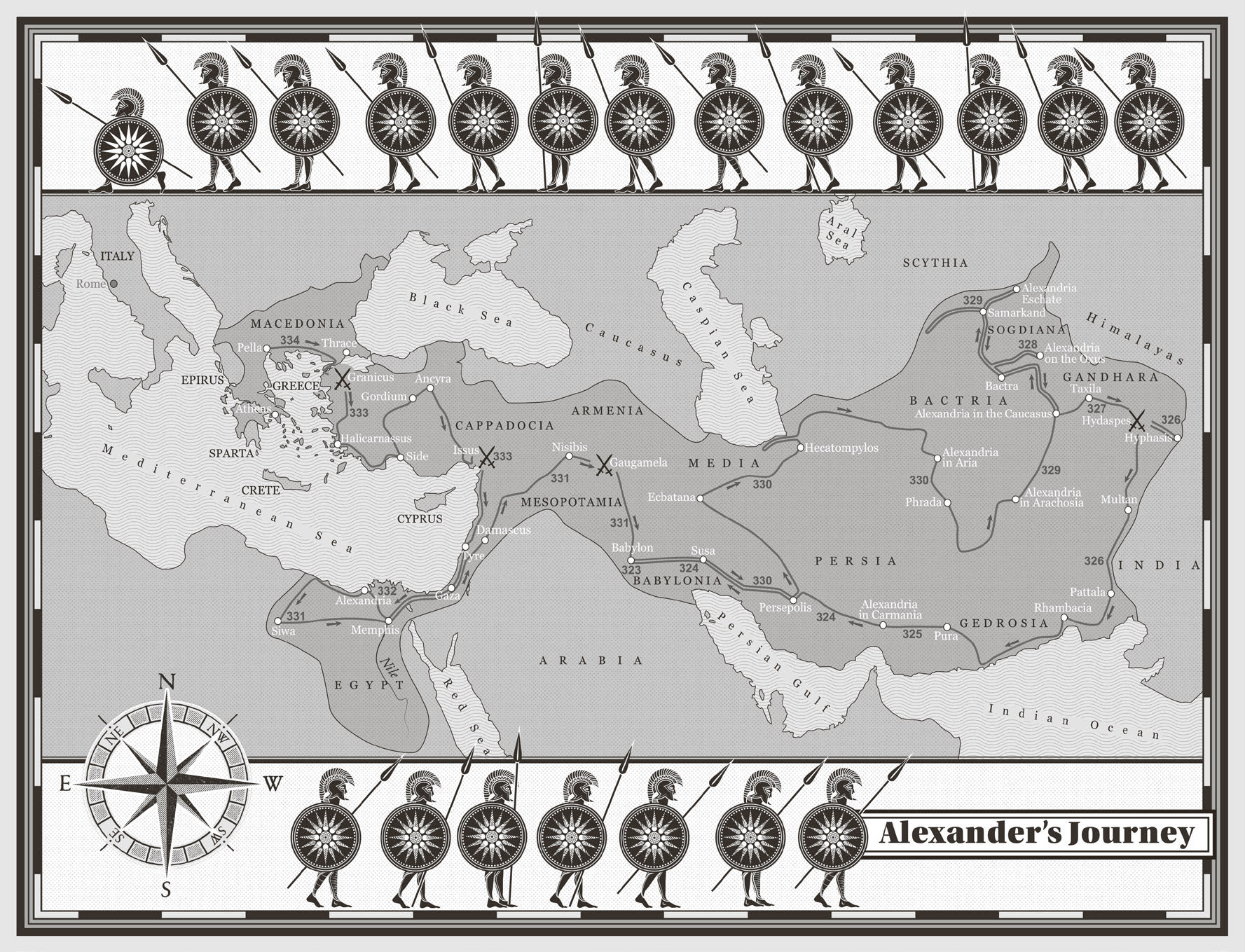

PROLOGUE
The Dream
It was a beautiful day, the sun hot and high in a perfect blue sky. Light danced on the waters of the Hellespont, the narrow strait dividing Europe from Asia.
The young man stood at the helm of his ship. He was short and broad-shouldered, with soulful eyes and fair, curly hair that fell over his ears.
All his life, he had looked forward to this moment. As a boy, wandering with his friends in the woods, he had pictured himself leading his fleet across the sea, charging up the beach with his comrades, laying waste to his foes with sword and spear.
He was a warrior, born and bred. But he was a dreamer, too. He loved books and poetry, riddles and stories.
Above all, he dreamed of adventure. He saw himself scaling mountains, crossing deserts and discovering strange new lands.
Now he was making that dream a reality. And as the rowers pulled on the oars and the breeze whipped at his sails, he threw back his head to the heavens, and laughed for sheer joy.
When they were halfway across the channel, his servants led forward a bull, which they had brought as a sacrifice for the sea-god Poseidon.
The young man raised his knife. It took just a moment.
When it was done, he raised a golden wine-goblet above his head, and emptied it over the side a gift for the Nereids, the nymphs of the sea waters.
The coast of Asia loomed ever larger. Resplendent in his shining armour, the young man faced the eastern shore. His eyes blazed with excitement. A spear gleamed in his right hand.
The shore came closer and closer. Sand crunched beneath the hull.
Then he was down, leaping into the surf. From his arm the spear streaked through the air, an arc of brilliant silver, plunging into the sand.
Now the young man raised his voice above the waves. This, he cried, was a sign that the gods had given him all Asia, as his spear-won prize!
Cheers rose from the ships behind him. And in their hundreds and thousands, his men leapt down into the shallows, following their king onto the soil of Persia.

The young mans name was Alexandros, which means Defender of the People. Today we know him as Alexander the Great.
He lived more than two thousand years ago, in the fourth century BC . Even at the time, he seemed the very image of courage and glamour. His life was packed with so many adventures that no storyteller would dare to invent it.
Born in the kingdom of Macedon, a wild realm on the edge of the ancient Greek world, Alexander fought his first battles when he was just a teenager. He rode to war alongside his boyhood friends, on a stallion he had tamed himself.
Becoming king at the age of twenty, he led his men on one of the most extraordinary journeys in history. In search of glory, they crossed the sea to fight the Great King of Persia, the most powerful ruler on earth.
For thousands of miles they marched, winning battle after battle. They crossed the mountains of Syria and the deserts of Egypt; they saw the pyramids and the River Nile.
Alexander and his friends visited exotic temples and sought the advice of mysterious, otherworldly gods. They conquered the largest city the world had ever seen, and captured the most valuable hoard of treasure in history.
And still they kept going: eastward, ever eastward, towards the rising of the sun. They climbed the peaks of Afghanistan, and crossed the rivers of India. They encountered gods and elephants, bandits and princesses.
And then, when the edge of the world seemed almost in sight well, that would give away the ending.

The world of Alexander, more than twenty centuries ago, was very different from our own. There were no modern medicines, no cars, no computers. It was a world steeped in myths and legends, yet it was just as real to its inhabitants as our world is to us.
Ancient Greece was not a single country. It was a constellation of rival cities and kingdoms, which spoke roughly the same language and worshipped the same gods.
At its centre was the Mediterranean Sea, especially its north-eastern corner, known as the Aegean. As the philosopher Plato put it, the Greeks lived on its shores like frogs around a pond.
Much of the outside world was a mystery to them. They knew of the great civilization of ancient Egypt, and they were very familiar with their gigantic, much-feared neighbour, Persia, which dominated what is now the Middle East.
But the Greeks knew little of northern Europe or Africa. They knew virtually nothing of India, and nothing at all of China. And they had not the slightest idea that the Americas existed at all.
In many ways this was a dark and dangerous world. Disease was very common. Many people died before they reached the age of forty, and about half died before their mid-teens.
Women were generally expected to stay at home and bring up children. Most men worked in the fields, and lived by a code of honour that many of us would find terrifyingly violent.
And yet Alexanders world was, in its own way, a place of light and beauty. The Greeks adored poetry, and wrote some of the greatest plays in all history.
They loved to argue and were fascinated by ideas. They studied mathematics and nature, the movement of the stars and the workings of the human body. It was the Greeks, along with their neighbours in Persia, Egypt and, later, Rome, who laid the foundations for our own civilization today.
Next page
